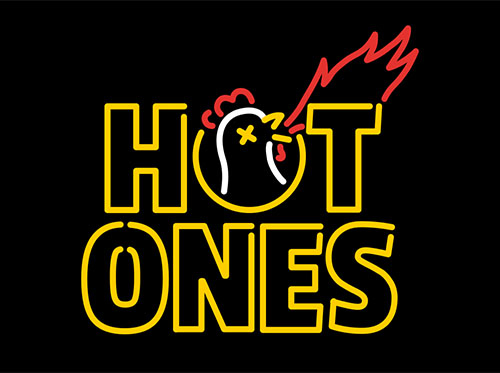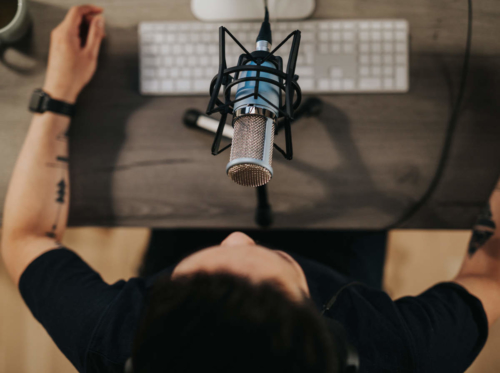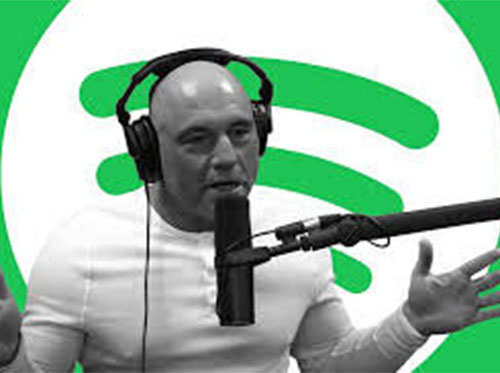Lessons from Call Her Daddy: IP, Food, Talent, Leadership
Call Her Daddy is a podcast produced by Barstool Sports. Until April 8th, the show was co-hosted by Alex Cooper and Sofia Franklyn. Starting tomorrow, Wednesday May 27, Alex will be the sole host.
The Call Her Daddy controversy has caused a media whirlwind, with pickup ranging from the NY Times to the NY Post. The story starts with the show’s founding in 2018, its immediate sale to Barstool Sports and rapid rise to fame, and then more recently, deal re-negotiations, IP ownership battles, HBO exec boyfriends, talent in-fighting, social fandom mania, Scooter Braun, and more.
We won’t tell the full story here. We recommend listening to Barstool founder Dave Portnoy tell his side, and watching former co-host and now sole host Alex Cooper vlog her side.
Our takes:
Transparency for the win.
Barstool founder Dave Portnoy speaks his mind. Always.
Every day he talks direct to Barstool fans (“Stoolies”) on Twitter, Instagram. He often goes “live”. His words are raw, unfiltered.
His employees and partners know exactly where they stand with him (like when he told CHD co-hosts Alex and Sofia to go f*** themselves when he felt they over negotiated).
NDAs don’t cause him to mince words. He doesn’t shy away from legal battles or controversy.
Dave’s communication style is not for every leader. But his straight talk, and rapidity to transparency, should be.
In the middle of peak CHD controversy, Dave didn’t publish a formal press release. He didn’t go quiet upon the recommendations of lawyers.
He simply went straight to the fans.
On May 17 Dave published a 29 minute tell-all story on the Call Her Daddy podcast feed. It was the “truth as he knows it”. Five days later Alex Cooper came out and told her story in a 34 minute YouTube vlog. Her story includes making amends with Dave and her planned return to the Barstool network.
The video boasts 1.9M views, 42k “thumbs up”, 1k “thumbs down”. A favorable ratio.
Of course, there are more stories to be told. We have yet to hear Sofia’s full take. Peter Nelson (Sofia’s HBO exec boyfriend and who was rumored to be shopping the CHD show to other networks like Wondery), has not yet publicly chimed in.
No one will ever know the full “truth”. Instead, fans and industry observers will only know what was shared. And Dave got ahead of the story.
Dave “stood in his power”. By trusting his gut during the deal negotiations, offering more money when he thought it was deserved, and refusing when he thought it wasn’t. Then, going direct to fans with the whole, unvarnished, story.
We believe Dave’s leadership style and straight talk, which is consistent with Barstool values dating back over 17 years, will allow the company to emerge even more powerful from this controversy.
The power of talent.
Barstool was willing to re-negotiate with Alex and Sofia because the two women co-hosts had a lot of leverage.
CHD is personality-led IP. Alex and Sofia power the creative and audience machine. As a result, there were deal re-negotiations back in 2019, partway through the three year talent deal term, even before the whole controversy got underway. And Dave was right to engage. Barstool was winning big via the success of the CHD podcast via advertising revenues and cross network promotion.
It was important to keep Alex and Sofia happy. Unhappy talent, even “under contract”, can stop creating. That’s a lose-lose situation. They can also go direct to fans to tell their story, good or bad.
Good business means respecting the integrity of contracts, yet also being realistic. When the success scale changes, talent expectations change. A revisit of how to divide the pie can make a lot of business sense.
Because a good leader looks out for both the business and the team, and the near term and the long term. All these dynamics were at play during the deal negotiations. And because in today’s media landscape, personality has incredible powering in driving audience and revenue.
IP is gold, but team and fandom are platinum.
High quality intellectual property is a powerful asset. It brings audience, drives fandom, incubates new IP and talent, and more. Collectively, this enables multiple revenue streams and drives enterprise value.
But, making IP requires investment of time and money.
This explains why Barstool took ownership of the CHD IP after the company paid to bring the podcast, and co-hosts Alex and Sofia, into its podcast network and employee pool back in 2018. An exchange of time and money for IP ownership. It also explains why Barstool fought hard to keep IP ownership in recent negotiations.
But, Dave made it clear that the Barstool team and CHD fans came above all else.
Every week that CHD wasn’t “on the air”, Barstool lost $100k+ in revenue from sponsorships, merch sales, and more. As one of the best performing Barstool podcasts, that was a major blow to company profitability. And, this is all during COVID, when overall media advertising is down.
Rapidly declining profits meant Barstool jobs were at risk.
Further, CHD fans weren’t happy. They wanted the weekly episodes to return.
So, Dave offered to return the IP back to the co-hosts to help close the new deal. A massive concession considering IP is the bedrock of media company value.
Business teams and talent representatives have a job to maximize revenues and protect their company / client interests. It’s a fiduciary responsibility. But, not giving fans what they want is the biggest risk of all. If fans are unhappy, then the business, employees, investors, talent, reps, et al will lose.
Dave emphasized this point in his May 17th tell-all episode on the CHD podcast feed. Barstool needs the show, and its fans, to come back. Alex also brought up another good point in her vlog. At the end of her video, Alex noted that Call Her Daddy is much bigger than her and Sofia.
She could not be more right.
Alex birthed the CHD community, and she now has an important role to play as a key member of said community. And that insight caused her to make a direct call back to Dave to negotiate in good faith and get a deal done quickly.
Now, the show is back starting tomorrow. Fans are thrilled. Employees can be paid. And Barstool and Alex will start making (lots of) money, again.
The power of Food / Beverage and Media.
Throughout the tell-all podcast and vlog, the alcohol “carve-out” was repeatedly mentioned.
We at RockWater thought this meant that Barstool would have 100% share of alcohol advertiser revenue from the podcast. Instead, we realized “alcohol” might actually mean branded Call Her Daddy spirits. And that Barstool owns 100% of all new spirit IP and revenues.
Very interesting. And makes total sense.
Barstool had incredible success with Pink Whitney, the pink lemonade vodka brand launched in partnership with New Amsterdam Vodka. Launched from the Spittin’ Chiclets podcast (on which New Amsterdam was a show sponsor), the new vodka brand is estimated to have sold 1M bottles in its first six weeks of sales.
The Barstool team likely wants to build off that success, considering the company has the launch and marketing formula from its first go around with Pink Whitney. And, the Barstool team probably learned a lot, thus making their second spirits launch have much more revenue potential.
It also explains why Barstool would be willing to forego show IP ownership in the negotiations, since the alcohol carve-out would protect one of the most valuable show revenue lines.
Commerce plays a large role in food media, and we’ve written about it in the past. Curious to see how the CHD alcohol initiative takes shape.
Edited like a vlog.
Alex alone edits the CHD weekly podcast. What starts out as a three hour recording becomes a one hour show when Alex’s editing work is complete. The process takes 7-20 hours per show (of note, the editing work is one of the reasons Alex asked for, and received, slightly more pay than Sofia).
On Alex’s tell-all YouTube video, Alex mentioned she edits the podcast like a vlog.
In other words, quick cuts in between segments to make the show punchier, more engaging. Overall, a more appealing format for the show’s millennial and Gen Z audience, who are accustomed to the “jump cut” style editing of YouTubers and social media videos. Alex said she learned from creators and audiences on social media platforms. Then applied those learnings back to her own show.
A fascinating insight into the show’s path to success.
Relentless talent incubation.
With audiences concerned about CHD going away, Barstool got countless new host submissions. Dave made it clear in an Instagram post that he wanted Alex and Sofia to return to CHD, yet didn’t dissuade the fan zeal.
Dave reminded fans that Barstool is always on the hunt for new talent and shows (hence the origins of CHD!) He thus told people to submit via auditions@barstoolsports.com.
Now the “Daddy Gang” is tagging one another on the Instagram comments, encouraging peer submissions.
Barstool will undoubtedly receive some good talent and show ideas. And with personality-led content being a primary audience and revenue driver for new Hollywood, Barstool just found another way to navigate this controversy towards more success.
Never let a good crisis go to waste.
—
Ping us here at anytime. We love to hear from our readers.



